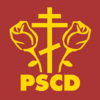Juclandian parliamentary election, 2013
| |||||||||||||||||||||||||||||||||||||||||||||||||||||||||||||||||||||||||||
All 25 seats to the Assembly of Deputies 13 seats needed for a majority | |||||||||||||||||||||||||||||||||||||||||||||||||||||||||||||||||||||||||||
|---|---|---|---|---|---|---|---|---|---|---|---|---|---|---|---|---|---|---|---|---|---|---|---|---|---|---|---|---|---|---|---|---|---|---|---|---|---|---|---|---|---|---|---|---|---|---|---|---|---|---|---|---|---|---|---|---|---|---|---|---|---|---|---|---|---|---|---|---|---|---|---|---|---|---|---|
| |||||||||||||||||||||||||||||||||||||||||||||||||||||||||||||||||||||||||||
| |||||||||||||||||||||||||||||||||||||||||||||||||||||||||||||||||||||||||||
A parliamentary election to elect the members of the lower house of the 7th Great National Assembly of Juclandia was held on the 22nd December 2013. On 26 November, the Government adopted an Executive Order on the elections, and decided that a system of reinforced proportional representation would be used in the election. As such, the party or the alliance that gets at least 58% of the votes, would get 68% of the seats in the Assembly of Deputies. The system has been criticised as undemocratic by the opposition and by the Political Committee of the Juclandian Academy.
The election will be mainly contested by two informal camps: the progressives (the Socialists, the Communists and the Liberals) and the conservatives (the Conservatives and the Christian Democrats). While the progressives campaign for continuing the reforms of the economic system started by Teddy Populescu in January 2013, the conservatives aim to keep the system set up by consecutive Socialist-led and Conservative-led governments.
Incumbent Teddy Populescu was re-elected as Prime Minister, while Iepurica Democrescu, the opposition's nominee for Prime Minister, continued as Leader of the Opposition.
It was Juclandia's last parliamentary election. In November 2014, the Assembly of Deputies was dissolved, and the new Constitution adopted in 2015 transformed the Great National Assembly into a unicameral and direct democratic assembly, removing the need of parliamentary elections.
Background
In April 2013, several party congresses took place in the preparation for the presidential election of August 2013. In the Socialist party, Gori Jucărescu resigned from his position as president and party member after the congress elected Ovia Bogi as nominee for the election. Due to internal conflicts between different factions, as of September 2013 the party still hasn't got a new leader, and interim leadership is provided by a collective committee. The factions range from those that support the current coalition, from those that support either a new party lead by Gori Jucărescu or a coalition with the Democratic Party.
Leadership changes have also taken place in the Communist Party of Juclandia, where Teddy Populescu has replaced Miaunel Comuneanu as General Secretary, and thus has assumed full leadership of the party. In the Democratic Party, Pisica Democrescu followed the precedent set by Gori Jucărescu and decided to resign party presidency and membership to become Jucărescu's running mate. She was replaced by Iepurica Democrescu, who already has been Leader, and has thus assumed full leadership of the party.
An important factor in the election is considered to be the United Revolutionary Front, a social and political movement that won all local elections held in 2013, but has refused to register as a political party to compete in the parliamentary elections. Its de facto leader is believed to be Gori Jucărescu, incumbent President of Juclandia. Due to its considerable membership, standing at 49, it is believed that FRU's stance in the election will have a great impact on the final result or the turnout.
Participating parties
In August 2013, Teddy Populescu, leader of the Communist Party of Juclandia, along with the leaders of the Socialist Christian-Democratic Party and the Liberal Alliance, announced that the coalition will compete for re-election, this time under a formalised coalition agreement. In October 2013, the agreement has been signed under the title Progressive Juclandia.
In response to the coalition agreement, opposition leader Iepurica Democrescu announced that the Democratic Party signed a coalition programme agreement with the New Democracy, called the Union for Development.
All in all, the participating parties are:
- Socialist Christian-Democratic Party, member of the Progressive Juclandia coalition. Stands for the improvement of the rule of law by adopting laws for certain sectors of the country that currently stand unregulated. Experiences an internal conflict which prevents it from having one leader.
- Democratic Party, member of the Union for Development. Stands for a stronger enforcement of law and order, and a modification of the Civil and Penal Codes along with a stronger army, to ensure public order. Supports the economic policy of the former Iepurica Democrescu cabinet, which emphasized a partnership between the state and the private sector.
- Liberal Alliance, member of the Progressive Juclandia coalition. Puts emphasis on economy and supports the reforms of Prime Minister Teddy Populescu. Push for the abolishment of state involvement in the economy through the creation of a workers' managed economy and opposes government control over the National Bank of Juclandia.
- Communist Party of Juclandia, member of the Progressive Juclandia coalition. Supports radical economic reforms and wishes to grant political power to the workers' councils and co-operatives. Strong advocate of the rule of law, supports the adoption of a greater bureaucracy and formalisation of different customs and conventions, along with a greater emphasis put on the National Archives of Juclandia, to keep record of all governmental activity.
- New Democracy, member of the Union for Development. Strong opponent of state-involvement in marriage. Supports private enterprise and wishes to disband the co-operatives set up by Iepurica Democrescu in December 2012. Supports the economic policies of the Democratic Party, but is generally considered to be more conservative on social issues. Advocates political involvement of the Orthodox Church of Juclandia.
Opinion polling
| Polling Firm | Date | Socialist | Conservative | Liberal | Communist | Christian Democratic |
|---|---|---|---|---|---|---|
| 2013 election | 23/12/2012 | 27% | 23% | 19% | 17% | 14% |
| ISSUJ | 04/10/2013 | 25% | 21% | 23% | 18% | 13% |
| Voiteies | 10/10/2013 | 19% | 23% | 27% | 21% | 10% |
| ISSUJ | 11/10/2013 | 21% | 24% | 25% | 20% | 10% |
| ISSUJ | 18/10/2013 | 21% | 23% | 26% | 21% | 9% |
| Brivipoll | 20/10/2013 | 18% | 25% | 26% | 20% | 11% |
| Voiteies | 21/10/2013 | 18% | 23% | 24% | 21% | 14% |
| ISSUJ | 25/10/2013 | 19% | 22% | 23% | 25% | 11% |
| Brivipoll | 27/10/2013 | 20% | 26% | 22% | 20% | 12% |
| ISSUJ | 01/11/2013 | 20% | 21% | 24% | 23% | 12% |
| Sonyal | 02/11/2013 | 16% | 28% | 24% | 19% | 13% |
| Sonyal | 08/11/2013 | 17% | 23% | 24% | 23% | 13% |
| ISSUJ | 08/11/2013 | 18% | 24% | 21% | 25% | 12% |
| Brivipoll | 11/11/2013 | 17% | 25% | 26% | 19% | 13% |
| Sonyal | 12/11/2013 | 17% | 23% | 22% | 25% | 13% |
| ISSUJ | 15/11/2013 | 19% | 23% | 21% | 24% | 13% |
| ISSUJ | 22/11/2013 | 17% | 24% | 20% | 26% | 13% |
| ISSUJ | 29/11/2013 | 18% | 25% | 19% | 26% | 12% |
| Brivipoll | 01/12/2013 | 16% | 26% | 20% | 25% | 13% |
| ISSUJ | 06/12/2013 | 16% | 26% | 18% | 28% | 12% |
| Brivipoll | 11/12/2013 | 17% | 25% | 21% | 24% | 13% |
| ISSUJ | 13/12/2013 | 17% | 25% | 21% | 26% | 11% |
| Brivipoll | 17/12/2013 | 16% | 28% | 20% | 25% | 11% |
| ISSUJ | 20/12/2013 | 17% | 26% | 18% | 27% | 12% |
Results
| Parties and coalitions | Votes | % | Seats | % | Swing | |||||||
|---|---|---|---|---|---|---|---|---|---|---|---|---|
| Communist Party of Juclandia | Communist | 49 | 28.3% | 8 | 32% | ▲4 | ||||||
| Liberal Alliance | Liberal | 32 | 18.5% | 5 | 20% | |||||||
| Socialist Christian-Democratic Party | Socialist | 28 | 16.2% | 4 | 16% | ▼3 | ||||||
| Total Progressive Juclandia | 109 | 63% | 17 | 68% | ▲1 | |||||||
| Democratic Party | Conservative | 46 | 26.6% | 5 | 20% | ▼1 | ||||||
| New Democracy - Christian Democratic | Christian Democratic | 18 | 10.4% | 2 | 8% | ▼1 | ||||||
| Total Union for Development | 64 | 37% | 7 | 28% | ▼2 | |||||||
| Pisica Democrescu | Speaker | - | - | 1 | 4% | ▲1 | ||||||
| Total | 173 | 100% | 25 | 100% | ||||||||
| Valid votes | 173 | 100% | ||||||||||
| Spoilt and null votes | 0 | 0% | ||||||||||
| Votes cast / turnout | 173 | 91.53% | ||||||||||
| Abstentions | 16 | 8.47% | ||||||||||
| Registered voters | 189 | |||||||||||
| Source: Official results of the 2014 parliamentary election | ||||||||||||




